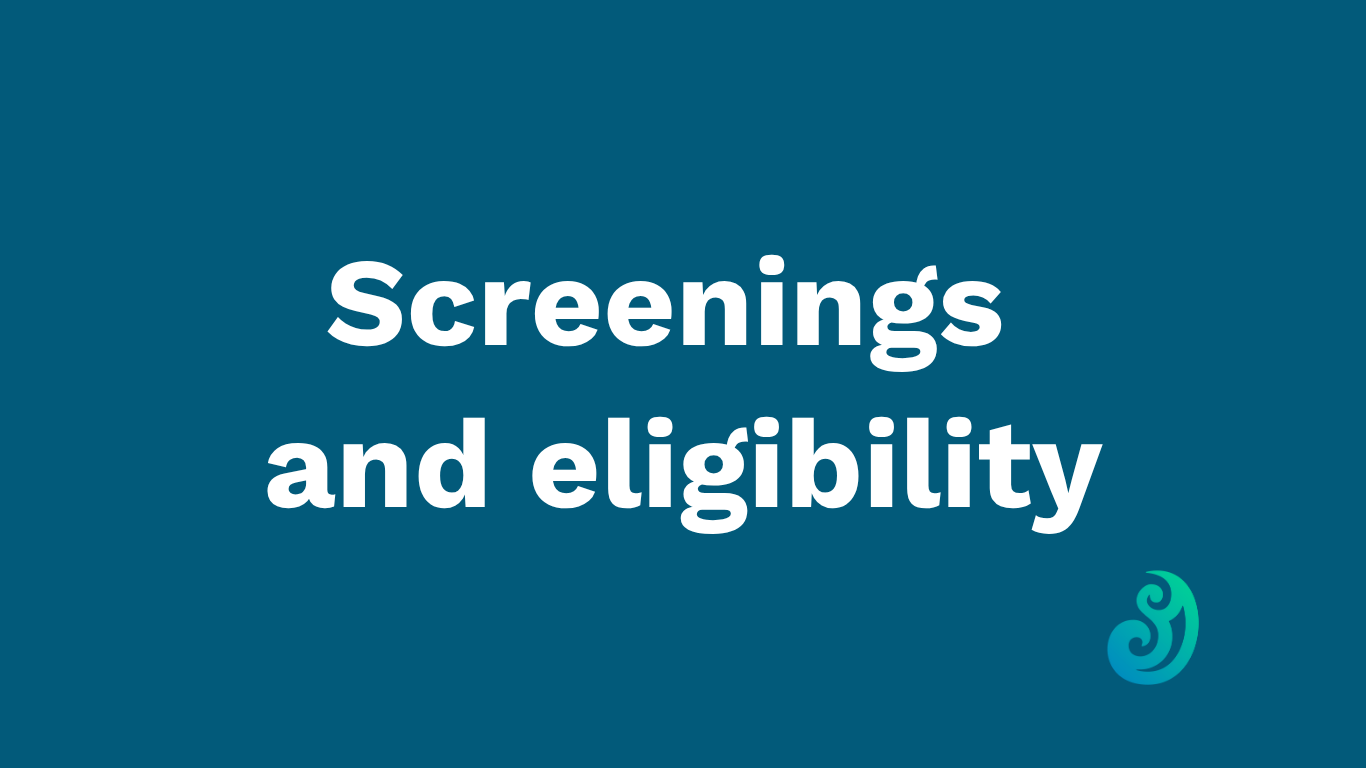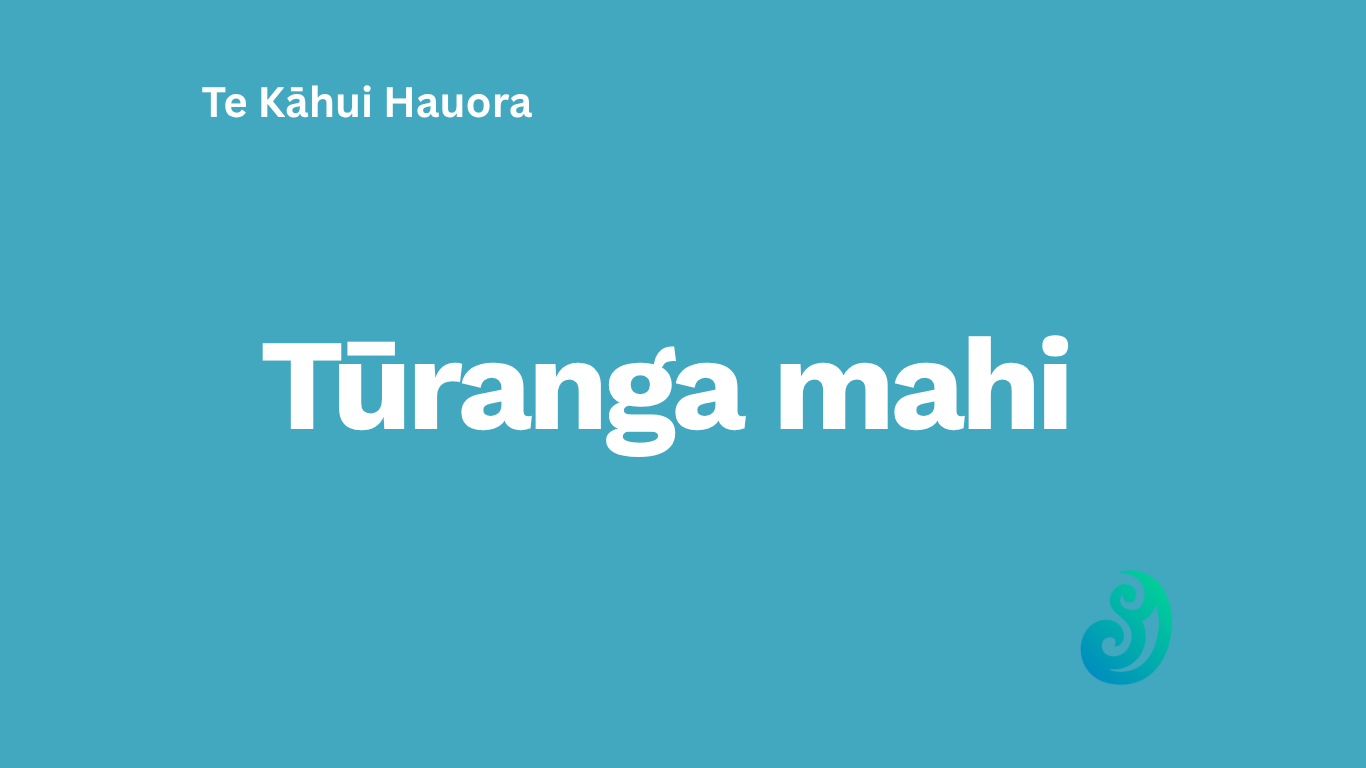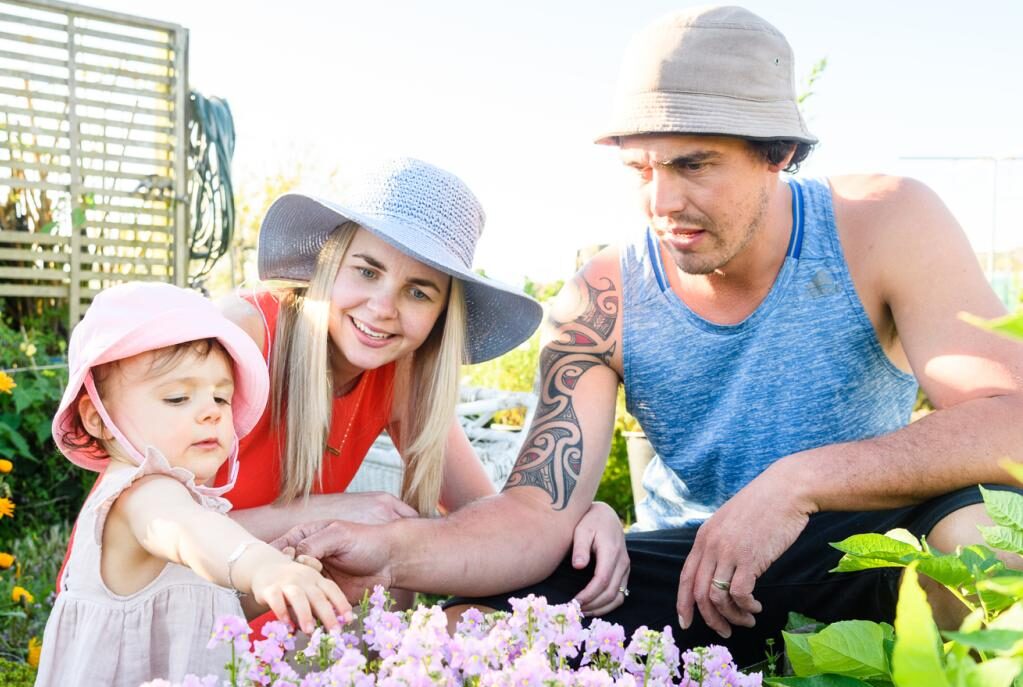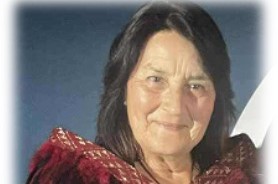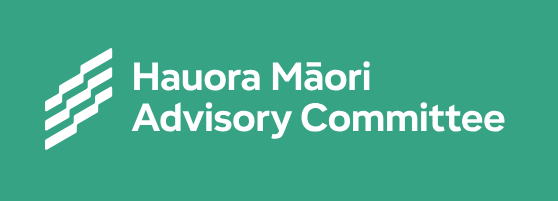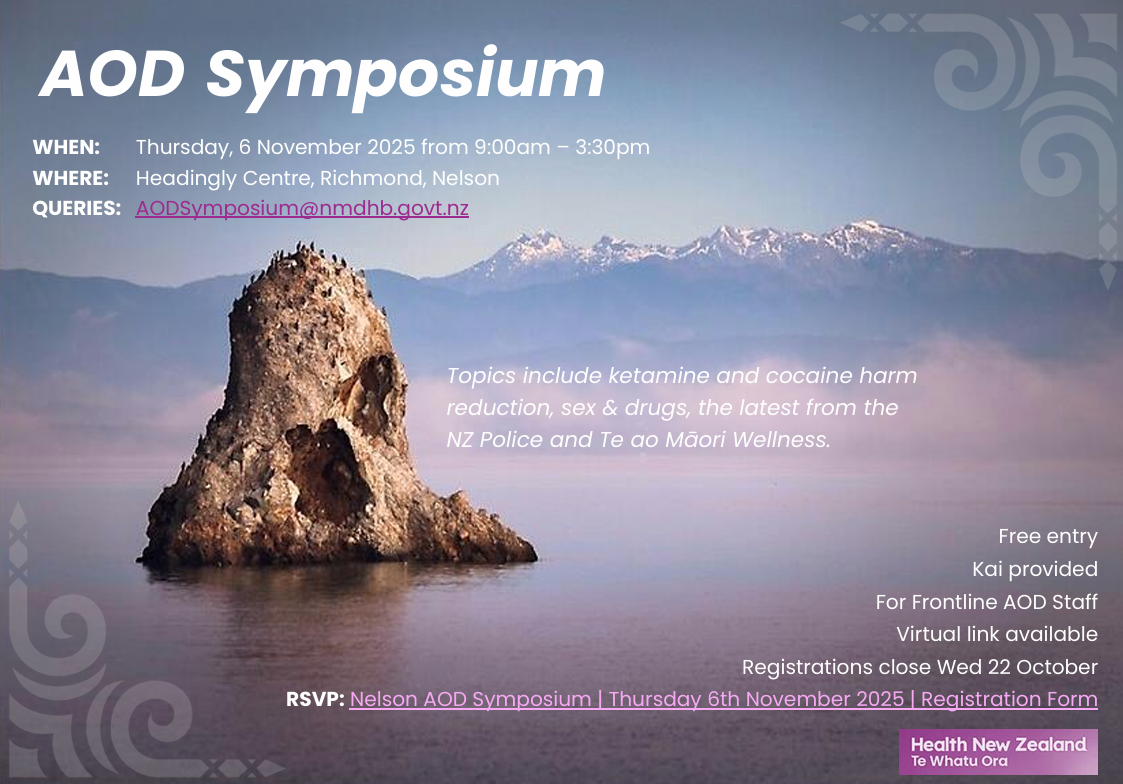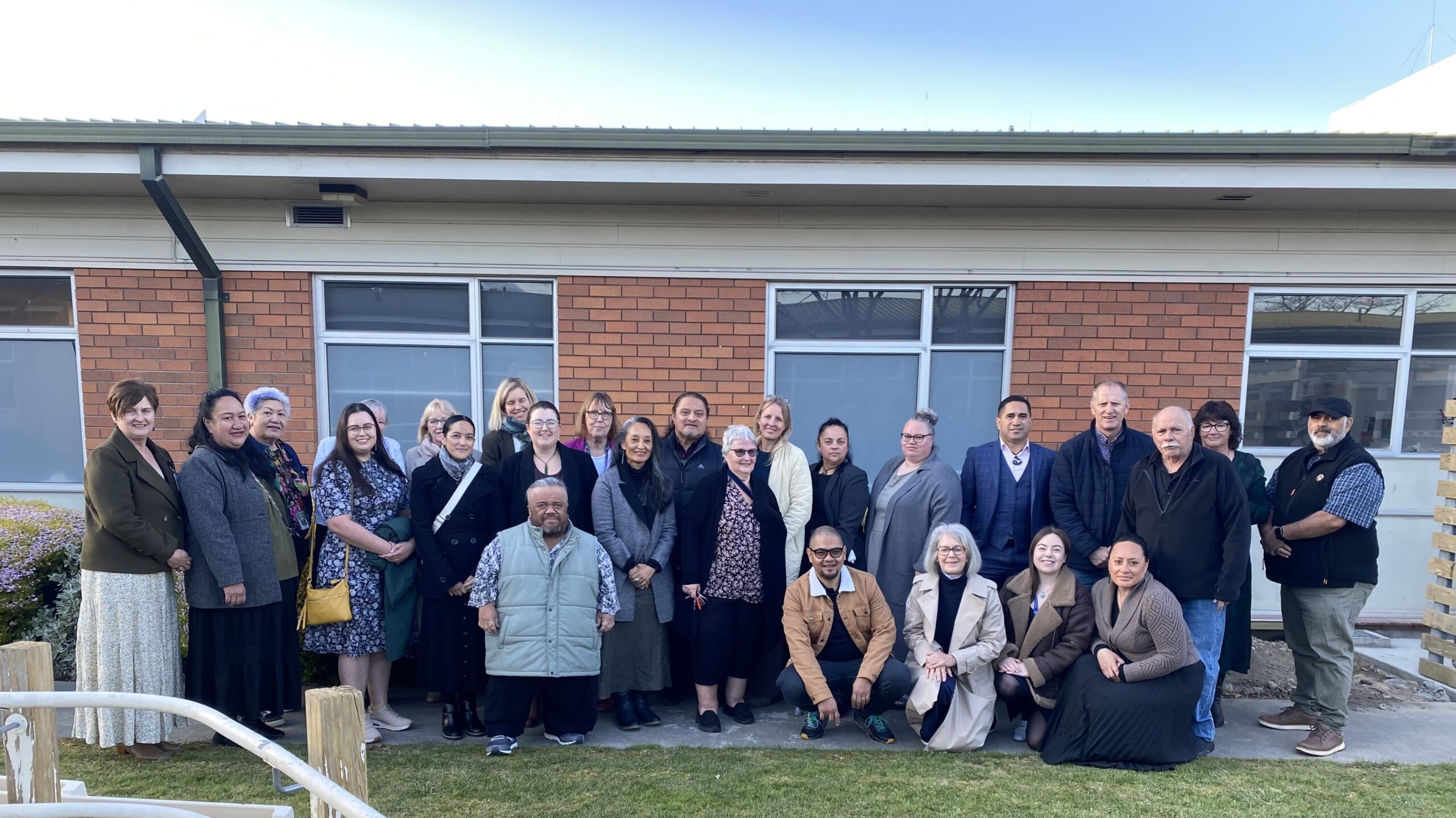Te Kāhui Hauora rejects committee's final report
PĀNUI PĀPĀHO / MEDIA RELEASE
Wednesday, November 26, 2025
Select committee brushes off evidence and widespread opposition to Healthy Futures (Pae Ora) Amendment Bill
The Iwi Māori Partnership Board for the top of the South Island says the Health Committee’s final report on proposed amendments to the Pae Ora (Healthy Futures) Act is further proof that the Coalition Government is not listening and is not interested in equitable outcomes for all.
Te Kāhui Hauora o Te Tauihu is one of 15 regional Iwi Māori Partnership Boards (IMPBs) set up with iwi partners under the Pae Ora (Healthy Futures) Act (2022) to ensure the voices of Māori are heard in healthcare decision-making and improve hauora outcomes for Māori.
 When Te Aka Whai Ora, the Māori Health Authority, which was central to the Pae Ora reforms, was dismantled in June last year, IMPBs were assured they would continue to play an integral - and expanded function – within the health system to address entrenched inequities in health outcomes.
When Te Aka Whai Ora, the Māori Health Authority, which was central to the Pae Ora reforms, was dismantled in June last year, IMPBs were assured they would continue to play an integral - and expanded function – within the health system to address entrenched inequities in health outcomes.
Not even 18 months later, that commitment lies in tatters.
On Friday afternoon, the Health Committee quietly released its final report on Health Minister Simeon Brown’s Health Futures (Pae Ora) Amendment Bill, recommending the bill be passed and paving the way for IMPBs to be largely stripped of their core functions.
Te Kāhui Hauora Pouwhakahaere, Dr. Kim Ngawhika, says the amendment bill, likely to face its second reading in Parliament in the coming weeks, is dangerous and puts lives at risk.
“The bill undoes years of progress. It strips our ability to shape local investment decisions, monitor system performance, and lead improvement actions. It also removes a legislative requirement for Health NZ to respond to our priorities, sidelining our voices once again. This only perpetuates the very underperformance and inequities that have plagued Māori health for decades.”
Among a raft of changes, the bill also strips key health sector principles designed to address inequities for all populations and passes responsibility for health performance monitoring from IMPBs to a politically appointed ministerial advisory committee.
The clause on Te Tiriti o Waitangi has also been modified, replacing the active obligations of partnership, protection, and participation with passive recognition.
Dr. Ngawhika said the Health Committee had overlooked the fact that continued inequities carried a very real human and financial cost to local health systems and had brushed aside decades of research and advice from leading health experts.
“When the Pae Ora (Healthy Futures) Act 2022 came into force, Sections 29 and 30 established IMPBs as strategic partners in the health system, a role anchored in the Te Tiriti o Waitangi provisions set out in Section 6.
“This was not a symbolic gesture. It was a deliberate and evidence-based approach, informed by health system reviews, decades of health system strategies, and research from here and overseas. The findings were consistent: communities achieve better health outcomes when they have a direct and formal voice in the prioritisation, design, and delivery of services that affect them. Yet here, we are, again.
“We wholeheartedly and firmly reject the Health Committee’s recommendation that the bill be passed and regard it as both unnecessary and harmful. This is another assault on Te Tiriti o Waitangi and on Māori.”
ENDS
CONTACT
E: [email protected] M: 021 2595 166
NOTES
- Te Kāhui Hauora o Te Tauihu is the Iwi Māori Partnership Board (IMPB) for Te Tauihu o te Waka-a-Māui, the northern South Island, encompassing the Tasman, Nelson and Marlborough regions.
- Te Kāhui Hauora represents the collective voice of the eight iwi of Te Tauihu (Ngāti Apa ki te Rā Tō, Ngāti Kuia, Ngāti Koata, Ngāti Rārua, Ngāti Tama, Ngāti Toa Rangatira, Rangitāne o Wairau and Te Ātiawa o te Waka-a-Māui) and Te Tauihu-based mātāwaka whānau.
- IMPBs were legislated in 2022 to engage with whānau and hapū about local health needs, evaluate the current state of Māori health, identify priorities, and monitor performance of the local health system.
Are you up to date?
What screening programmes and immunisations are available?
In Aotearoa, there are many health screening tests and immunisations available for every age and stage of your life. Most, but not all, are available free. You can find further up-to-date information on screening and health checks at Healthify Te Puna Waiora.
What are the 5 free screening programmes?
There are 5 free screening programmes (health checks) for certain population groups living anywhere in Aotearoa New Zealand. Find out who is eligible in the section below.
- Newborn Metabolic Screening Programme
- Universal Newborn Hearing Screening Programme
- Breast screening
- Cervical screening
- Bowel screening.
* Note that while the cervical screening programme itself is free, there is generally a charge for an HPV Primary Screening test to be done.
Antenatal screening for Down syndrome and other conditions is also offered. It's your choice whether or not to have this screening.
What health checks are available?
BreastScreen Aotearoa is available for women aged between 45 and 69 years to reduce their risk of dying of breast cancer.
National Bowel Screening Programme is for men and women in New Zealand aged 60 to 74 years.
National Cervical Screening Programme is available to all people with a cervix in New Zealand aged between 25 and 69 years. This is available free for some people, read more about who is eligible for a free screening on the cervical screening page.
Newborn Metabolic Screening Programme heel prick test when your baby is around 48 hours old.
Universal Newborn Hearing Screening Programme All babies now have access to newborn hearing screening free of charge.
Antenatal screening for Down syndrome and other conditions for wāhine who are less than 20 weeks pregnant.
The Core Health Checks 12 free core contacts to check on your child's growth and development, oral health, immunisations and whānau health and wellbeing.
The B4 School Check is a nationwide programme offering a free health and development check for 4 to 5 year-olds.
Other checks
You can also use a free tool called My Heart Check. Read more about heart risk assessment.
Funded vaccinations
Vaccines are funded for some children and adults at high risk of some diseases if they have other medical conditions. These include vaccines for:
- publicly funded hepatitis A
- hepatitis B
- haemophilus influenzae type b
- human papillomavirus (HPV)
- influenza
- meningococcal disease
- pertussis (whooping cough)
- pneumococcal disease
- tuberculosis
- varicella.
For more details, see funded vaccines for special groups.
Come work with us!
Whānau Voice Lead | Te Kāhui Hauora o Te Tauihu Iwi Māori Partnership Board
Te Kāhui Hauora is seeking a Whānau Voice Lead to support our Pouwhakahaere in delivering Whānau Voice — a kaupapa ensuring that the lived experiences, narratives, and aspirations of whānau Māori guide the future of hauora in Te Tauihu.
You’ll coordinate surveys, hui, and engagement alongside iwi, marae, and hauora providers, helping to turn whānau kōrero into meaningful insights that shape local and system-level change. Hours are part-time but negotiable.
We’re looking for someone confident in kaupapa Māori ways of working, experienced in community or whānau ora mahi, and passionate about uplifting the voices of whānau across Te Tauihu.
Location: Whakatū preferred (flexible)
Term: Fixed term through to July 31, 2026
Applications close: November 24, 2025
For a full job description and application form, please email [email protected]
Tonoa mai ināianei!
Health Survey Regional Results
(Information from Manatū Taonga)
The New Zealand Health Survey (NZHS) provides annual updates on the health of New Zealanders.
Information collected through the survey supports the development of health services, policy, and strategy. Survey data is collected continuously, but findings are reported annually.
The results provide data for people selected for the survey period from July to June each year.
The survey was first undertaken in 1992/93, with further surveys taking place in 1996/97, 2002/03 and 2006/07. The Ministry of Health’s wider health survey programme included surveys on nutrition; tobacco, alcohol and drug use; mental health; and oral health. From 2011, the Ministry of Health integrated the New Zealand Health Survey and these other surveys from its wider survey programme into a single survey, which is now in continuous operation.
The New Zealand Health Survey conducts face-to-face interviews with over 13,000 adults and the parents or primary caregivers of more than 4000 children annually. Every year, it includes a core set of questions, which help the Ministry of Health identify key issues and monitor trends.
The Data Explorer presents the most recent results, as well as trends. It provides information on health behaviours and risk factors, health status, long-term conditions, and access to and use of health care for both adults and children.
For more detailed information, have a look at further information from Manatū Hauora here.
For the latest Regional Results click here.
Kia tūpato e te whānau
E te iwi, with a confirmed measles case in Whakatū and large-scale contract tracing underway in Te Whanganui-a-Tara, it is really important that all of us check our vaccination status and ensure our tamariki, rangatahi, and kaumātua are also protected.
Since news of the case in Whakatū broke late last week, Te Tauihu hauora Māori providers have been working closely with public health officials and Te Whatu Ora to help stem further cases and support greater levels of protection in our communities.
![]() Te Piki Oranga: www.tpo.org.nz/mmrvaccine
Te Piki Oranga: www.tpo.org.nz/mmrvaccine
![]() Check if you are immune to measles: https://info.health.nz/.../about-measles/measles-immunity...
Check if you are immune to measles: https://info.health.nz/.../about-measles/measles-immunity...
![]() Find a place to get vaccinated: http://www.healthpoint.co.nz/search?q=immunisations...
Find a place to get vaccinated: http://www.healthpoint.co.nz/search?q=immunisations...
Te Pūrongo 2024
Manatū Hauora has released the Health and Independence Report 2024 – Te Pūrongo mō te Hauora me te Tū Motuhake. This annual report provides a picture of how the health system is performing and how whānau across Aotearoa are faring.
For Māori, the report confirms what many whānau already know: health outcomes remain inequitable. Māori continue to experience shorter life expectancy, higher rates of chronic illness, and greater barriers to accessing care. Tamariki Māori are less likely to be immunised, rangatahi are more likely to experience psychological distress, and too many whānau are avoiding care due to cost or long wait times.
There is also good news. Smoking rates among Māori have dropped significantly, more Māori are entering the health workforce, and the gap in life expectancy is narrowing. Kaupapa Māori services are reaching thousands of whānau, tamariki are being breastfed at higher rates, and more whānau are reporting positive experiences in the health system.
Te Kāhui Hauora will continue working with health authorities to ensure whānau Māori are afforded a health system which is equitable and fit for purpose. It is clear that we cannot allow the same system-led approaches to pae ora.
Hughes named patron
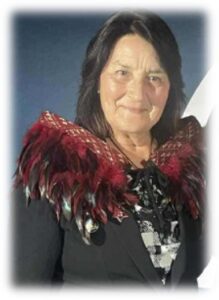 Te Kāhui Hauora acknowledges the appointment of Hemaina Hughes (Whakatōhea, Ngāpuhi) as Patron of Te Kaunihera o Ngā Neehi Māori, the National Council of Māori Nurses.
Te Kāhui Hauora acknowledges the appointment of Hemaina Hughes (Whakatōhea, Ngāpuhi) as Patron of Te Kaunihera o Ngā Neehi Māori, the National Council of Māori Nurses.
The role was once held by the late Whaea Putiputi O’Brien QSO and has been reinstated after a decade.
Heimana is a highly experienced clinician, educator and leader. Among her many achievements is the development of Te Ōhanga Mataora Paetahi: Bachelor of Health Sciences Māori Nursing, Bachelor of Nursing Māori programme. She also led the nursing programme at Whitireia Institute of Technology.
Luckily for us, Heimana is also the current national executive member for Te Tauihu on the nurses council and has long been involved with our rohe.
We thank Heimana for her ongoing service and leadership and could not think of a better person to take on this treasured patron role.
Hui with IMPBs and HMAC
Te Kāhui Hauora Co-Chairs Lydia Mains and Maria Briggs travelled to Tāmaki Makaurau last month to join with other IMPB chairs for the first meeting with the Hauora Māori Advisory Committee (HMAC). Under the proposed changes to the Pae Ora Act (2022), IMPBs will be required to report directly to HMAC.
IMPBs were vocal and spoke strongly about the amendment bill and their unique situations. There was also shared frustration around data access and monitoring.
However, the focus of the day remained on relationship-building and kotahitanga.
We will continue to keep you updated as we learn more.
Nelson AOD Symposium
Te Whatu Ora is now taking registrations for the Nelson AOD Symposium, coming up on Thursday, November 6, 2025.
The symposium is to learn, connect, and celebrate what's happening in the AOD sector. Topics include ketamine and cocaine from a harm reduction perspective, sex and drugs and more.
This is a free, all-day event at the Headingly Centre in Richmond, for frontline staff, with registrations from 8.30am and presentations from 9am. The day finishes at 3.30pm.
Food will be provided.
Register here.
For pātai, please email: [email protected]
Treatment closer to home
Te Kāhui Hauora Pouwhakahaere, Kim Ngawhika, and Board member, Kate Hippolite, were privileged to attend the blessing of the new Community Haemodialysis Unit at Wairau Hospital today.
Whānau spoke of the huge relief this service brings, with one noting, “we were never worried the treatment would kill them, but the long travel over the hill would”.
Kaumātua Luke Katu and Paora Mackie led a moving blessing. Kimi Hauora Wairau Marlborough Primary Health Organisation CE Beth Tasker and Health New Zealand - Te Whatu Ora's Jane Kinsey expressed gratitude to everyone who made the unit possible and acknowledged the power of community collaboration.
Te Kāhui Hauora congratulates Beth and her team; this milestone is a true reflection of whānau voice and the strength of the community working together.
This new unit marks an important step in improving access to care for whānau in Te Tauihu, ensuring treatment is closer to home and grounded in community.

